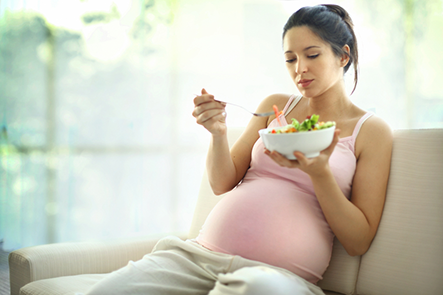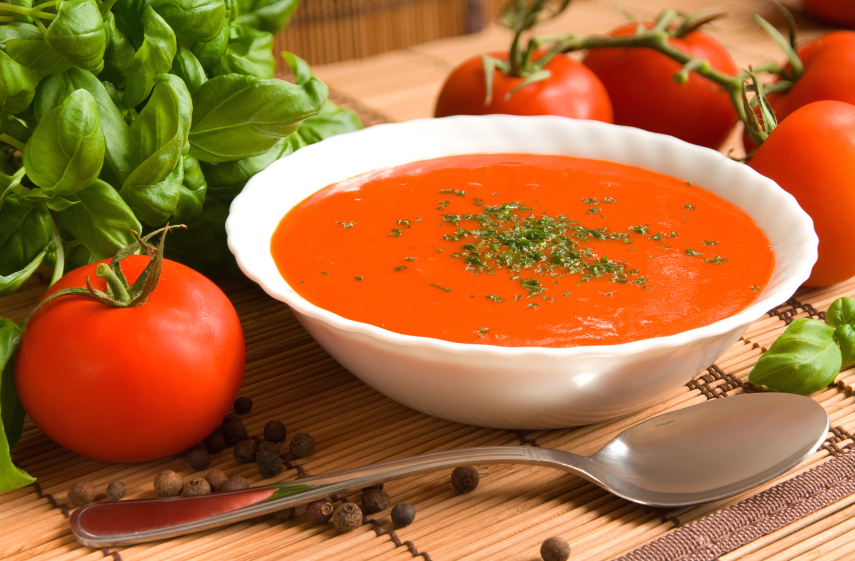Struggling to lose that baby weight and can’t figure out what you are doing wrong? Healthista’s no-nonsense nutritionist May Simpkin explains what you’re doing wrong
As well as making the last few arrangements for your baby’s arrival, the final weeks of pregnancy are also a time to resolve and commit to a strict regime that will see the extra pounds you’ve gained whilst pregnant shed in no time.
Once your baby arrives, the trials and tribulations of getting through from one day to the next take over and the extra weight you’ve packed on during the pregnancy is merely a lurking thought in a haze of feeds, cries and snatched Zzz’s.
After all, the weight has taken 9 months to accumulate and research shows that it can take at least the same amount of time after the birth for your body to return to its former self, in terms of size and weight.
However, fast forward to your baby’s 1st birthday. You’re still struggling to wear your pre-pregnancy clothes and despite your attempts to get back on track, your weight has stubbornly settled at a “new norm”.
It is important to keep your expectations in check and if you’ve got a lot of weight to lose, snapping back to a size 8 is an unlikely outcome immediately post birth. As a rule of thumb, with a healthy diet and good exercise/activity levels, you should be aiming to lose around 1-2lbs a week.
Here are 5 changes you can make to lose that baby weight.
MORE: How to freeze your eggs – a fertility expert explains
-
You’re not sleeping enough
Unsurprisingly sleep has a significant role in encouraging weight gain. Research shows that a lack of sleep can play havoc with the appetite regulating hormones, Leptin and Ghrelin. Leptin is your “full” hormone and during sleep, leptin levels rise, telling your brain that you have enough energy to satisfy your requirements and there is no need to burn additional calories. When you don’t get enough sleep, Leptin levels are low and messages that encourage hunger are sent from the brain; urging you to consume more calories. Regularly low Leptin levels result in a constant feeling of hunger and low levels of energy, which will encourage weight gain.
Ghrelin, on the other hand, has an opposite effect, telling your brain that you are hungry. During sleep, the levels of Ghrelin naturally drop as your body tells your brain it does not need as much energy and therefore it does not need extra calories. However, when you don’t sleep enough, you end up with too much ghrelin in the system, so your body thinks it’s hungry and needs more calories. Therefore it stops burning those calories thinking there is a shortage; again encouraging weight gain.Woman
-
You’re using coffee as a crutch
Meeting other mums in a coffee shop or at an anti-natal gathering can be a lifeline when getting through the early days with a newborn. The relentless rituals of looking after your newborn; ensuring your baby has been fed, changed (fed and changed again) and happily settled into the car seat before you rush out of the house, all alongside a lack of sleep, can take it’s toll over time and the associated stress will trigger the release of the stress hormone Cortisol; this encourages cravings for sweet, sugary foods and thus weight gain. Unfortunately these stresses can be unavoidable at this busy stage but it is important to minimize the release of cortisol by reducing other factors which also cause stress as far as possible; for example limiting coffee consumption, particularly if you rely on a coffee to perk you up and keep you going. Other caffeinated drinks such as colas or tea can also have a similar effect.
After 1 or 2 coffees at the beginning of the day, opt for herbal teas instead. This will improve your hydration as well as ensuring you avoid severe blood sugar fluctuations and the symptoms associated with this; eg headaches or feeling anxious or jittery.
MORE: Is bone broth the new coffee?
-
You’re not moving enough
The cycle of lack of sleep and lethargy can easily repeat itself week to week and you find that your activitiy levels are very low and you do not have the energy to consider joining a gym or exercise class. Slowly increasing your general day to day activity levels can be just as effective as joining a formal exercise programme and can be easier to incorporate into your day.
Start by walking to and from any appointments or gatherings and slowly increase from a gentle walk to a more brisk pace over time. Only use the car if the weather is bad or if it’s too far to walk. A fifteen to twenty minute walk each way is ideal. In addition, use your housework as an exercise activity. Inevitably you will be short of time as you slot in your daily chores during naptimes; an ideal excuse to work quickly and get through the chores, expending maximum energy.
Not only will the weight budge more easily, but you’ll soon find you’re feeling rejuvenated and invigorated and inspired to continue.
-
You’re still eating for two
Whilst it is crucial that you eat a healthy, balanced diet to provide enough energy and nutrients for you and your baby, the foods you choose and the portions you eat will play a significant role in your weight loss attempts. Plan your meals in advance and arrange a supermarket and perhaps a weekly organic vegetable delivery, so that simple breakfast, lunch and dinner options are readily available in the fridge and easy to eat, on the run if necessary.
For example, salads with sliced turkey or cooked chicken breasts, tinned beans and pulses with tuna and diced vegetables, homemade soups or Greek yoghurt with fresh fruit. Make arrangements, if possible, for someone to take care of your baby or during nap times and use this time for batch cooking so you have ready-made meals to hand. Try these easy meal suggestions that will keep in the fridge for convenience:
- A hearty soup with plenty of vegetables and protein. E.g. Boil a whole chicken in a slow cooker and use the broth as a base for a clear chicken and vegetable broth or try this Hearty Lentil and Tomato Soup
- Healthy dips are a great choice to grab when short of time. Combine with oatcakes or ideally boost your vegetable intake by eating with crudités such as carrots, peppers, celery and cucumber. Try this easy Beetroot and Horseradish Hummus for a nutritious dip that will keep in the fridge all week.
- Eggs are convenient, easy and quick to cook and packed with nutrients-an ideal choice. Scrambled eggs on sourdough with avocado and tomatoes or a mushroom or onion omelette with a rocket and watercress salad are nutritious and packed with plenty of protein and fibre.
- If you’re in need of a snack, make sure it’s a nutritious choice that will keep you going. These energising Chocolate Bliss balls will hit the spot if you’re craving a sweet treat or in need of a pick-me-up mid afternoon.
-
You’re not prioritising your own needs
There’s no denying that ensuring a healthy, happy baby is paramount and learning how to cope with these new responsibilities can be overwhelming; to the point that you have completely lost sight of your own needs. Prioritising your needs alongside your baby’s and indeed the rest of the family, is crucial. In the first instance download my free Ebook, available on my website, which will give you valuable advice and tips to get started. From there you will be well equipped to begin making small changes to your food choices and lifestyle that will help to kick start a healthy weight loss programme.

leading nutritionists
May Simpkin is a UK qualified Nutritional Therapist with a Masters Science degree in Personalised Nutrition. She is an experienced clinician, practicing functional medicine from an evidence base, providing the latest research into nutrition. She is a registered practitioner, bound by the code of ethics in clinical practice and has met the strict criteria required for BANT, the British Association for Applied Nutrition and Nutritional Therapy and the CNHC, Complementary and Natural Healthcare Council, which is the council recommended by the UK Department of Health for complementary and natural healthcare services. She is also Chair of the Continual Professional Committee at BANT. In addition, she is registered with AFMCP, The Institute for Functional Medicine – Applying Functional Medicine in Clinical Practice™ and a member of the RSM, The Royal Society of Medicine.
For more information on how to lose weight, nutrient rich repices, and ideas, visit www.maysimpkin.com or Follow May on Instagram: @maysimpkinnutrition or Twitter @MaySimpkin
Like this article? Sign up to our newsletter to get more articles like this delivered straight to your inbox.



























































